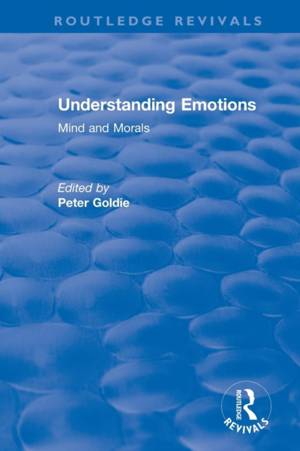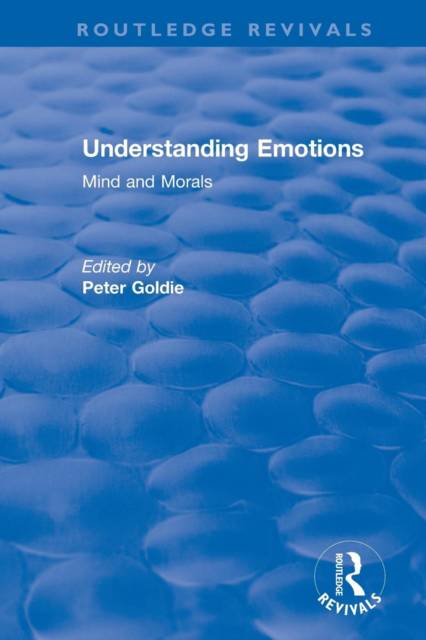
- Retrait gratuit dans votre magasin Club
- 7.000.000 titres dans notre catalogue
- Payer en toute sécurité
- Toujours un magasin près de chez vous
- Retrait gratuit dans votre magasin Club
- 7.000.0000 titres dans notre catalogue
- Payer en toute sécurité
- Toujours un magasin près de chez vous
Description
This title was first published in 2002: At the end of the 20th century, the emotions ceased to be a neglected topic for philosophical consideration. The editor suggests that this may, in part, be due to a change in the way the subject is approached. The emotions were characteristically thought of by philosophers as states which give rise to perturbation in what might roughly be called "right-thinking". The basic idea was that practical reasoning, like theoretical reasoning, ought to be, and can be, dispassionate. This means that either the emotions interfere with "right-reasoning" in a way which is a proper object of study for the biological sciences but not for the science of the mind, or that the emotions become reducible to, and analyzable as, collections of propositional attitudes which are themselves assessable in terms of "right-reasoning".
Spécifications
Parties prenantes
- Auteur(s) :
- Editeur:
Contenu
- Nombre de pages :
- 146
- Langue:
- Anglais
Caractéristiques
- EAN:
- 9781138724570
- Date de parution :
- 17-01-19
- Format:
- Livre broché
- Format numérique:
- Trade paperback (VS)
- Dimensions :
- 156 mm x 234 mm
- Poids :
- 213 g

Les avis
Nous publions uniquement les avis qui respectent les conditions requises. Consultez nos conditions pour les avis.






